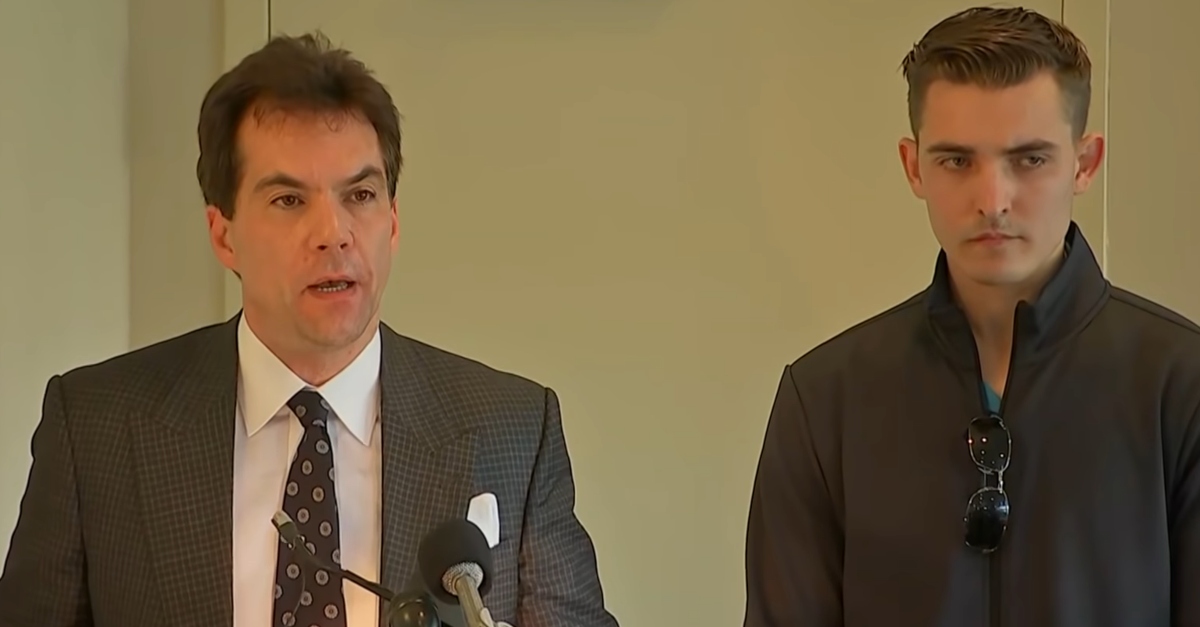
Jack Burkman and Jacob Wohl
The Federal Communications Commission proposed a $5.1 million fine against conservative operatives Jacob Wohl and Jack Burkman on Tuesday over a series of robocalls they commissioned that targeted Black and Latino voters in several states during the 2020 election.
According to the FCC, the phone calls placed to voters in New York, Ohio, and Michigan “were apparently prerecorded and made to consumers’ wireless phones without the required prior consent.”
The agency also notes that the proposed $5,134,500 penalty is the largest fine in the history of the Telephone Consumer Protection Act.
Under the TCPA, prerecorded voice calls cannot be made to cellular phone numbers without the consent of the person receiving the calls. The content of such phone calls is immaterial under the statute.
Widely-disparaged as racist by both litigants and elected leaders, the calls were allegedly part of a voter suppression scheme aimed at Democratic Party voters. Recipients were told that if they voted by mail their “personal information will be part of a public database that will be used by police departments to track down old warrants and be used by credit card companies to collect outstanding debts.”
Wohl and Burkman, for their part, admittedly commissioned the calls.
The FCC press release takes stock of those admissions:
The calls themselves identified Wohl and Burkman by name and used Burkman’s wireless phone number as the caller ID. Wohl and Burkman also both admitted under oath to their involvement in the creation and distribution of the robocalls, with Burkman stating in the U.S. District Court for the Southern District of New York, “That is our call, yes, yes” with confirmation from Wohl.
To date, Wohl and Burkman have been criminally prosecuted over the calls by authorities in both Michigan and Ohio.
New York Attorney General Letitia James (D) is also looking to stick the pair with high-dollar fines after being allowed to join an already-in-progress third-party lawsuit filed by the National Coalition on Black Civic Participation in October of last year.
The FCC’s Enforcement Bureau initiated its own investigation “following consumer complaints and concerns raised by a non-profit organization,” according to the agency’s press release.
Technically styled as a Notice of Apparent Liability for Forfeiture, the TCPA allows the FCC to issue a proposed monetary penalty. The amount and decision, however, is not final, and the defendants will have an opportunity to respond before the FCC issues a final memorandum outlining its findings as well as any concomitant enforcement action. The final enforcement action, if issued, would contain a fine that now cannot exceed $5.1 million.
“Across the board, the FCC is stepping up its efforts to combat illegal robocalls,” Acting FCC Chair Jessica Rosenworcel said in a statement. “Today, we propose a fine of more than $5 million for robocalls made by a group of individuals that clearly violate the Telephone Consumer Protection Act. I appreciate the unanimous support of my colleagues in this effort. I also appreciate the work of the Ohio Attorney General’s Office for their work with us to gather evidence and build a case. This kind of collaboration is vitally important in our work to combat illegal robocalls and I look forward to future collaboration like this with other law enforcement partners nationwide.”
The formal document notes that the FCC was first alerted to the robocalls in September 2020.
“The Enforcement Bureau worked with the Ohio Attorney General’s Office to identify two dialing service providers that provided subpoena responses confirming the robocall campaigns and identifying the clients who had hired them for this service,” the filing notes. “The Bureau used the subpoenaed call records and recordings of the calls to determine that the calls apparently went to wireless phones and the message was prerecorded. The consumers who agreed to speak with the Bureau about the calls confirmed they had not provided prior consent to the callers.”
The preliminary report issued a finding that determined “1,141 prerecorded calls” were made “to wireless phones without prior consent or an emergency purpose.” The fine is based on a proposed forfeiture amount of $4,500 per call.
Law&Crime reached out to Wohl and an attorney for the defendants, but no response was forthcoming at the time of publication.
[image via screengrab/NBC News]